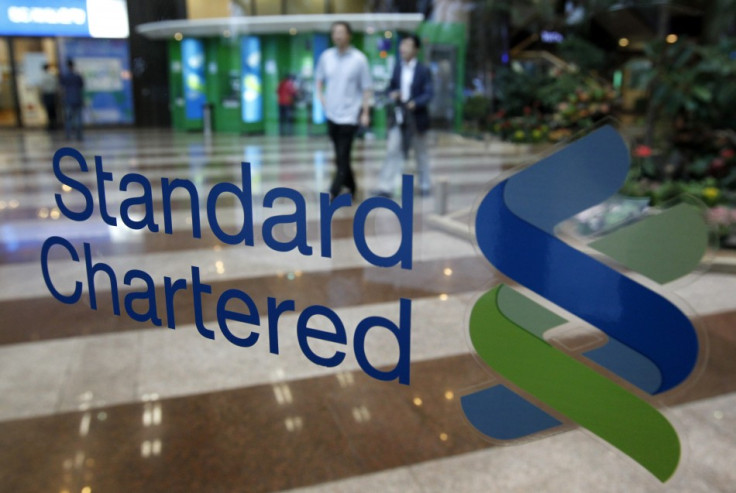Standard Chartered Prepares for Iran Money Laundering Hearing

Standard Chartered is preparing to defend itself against allegations from the New York state financial regulator that it hid a quarter of a trillion US dollars in transactions tied to Iranian clients in a hearing. Reports also say it has already discussed a settlement amount to resolve the inquiry.
The scheduled 15 August hearing is widely anticipated as there has been war of words between the New York's Department of Financial Services (DFS), headed up by Benjamin Lawsky and Standard Chartered's CEO Peter Sands have flown back and forth over the last week.
Sands hit back at the New York State regulator at the end of last week, after the DFS accused the group of hiding at least $250bn of transactions tied to Iran, by saying that the bank had not broken US sanctions and that he saw "no grounds" for revoking the lender's licence.
Sands said: "We reject the position and portrayal of facts by the Department of Financial Services (DFS)."
It would be "disproportionate and wholly inconsistent with the actions of other US authorities in other sanctions matters to revoke the bank's New York licence", he added.
The DFS said it conducted an extensive investigation, which included the review of more than 30,000 pages of documents, including internal Standard Chartered Bank (SCB) e-mails, that "describe wilful and egregious violations of law".
"For almost 10 years, SCB schemed with the government of Iran and hid from regulators roughly 60,000 secret transactions, involving at least $250bn, and reaping SCB hundreds of millions of dollars in fees," the DFS said.
"SCB's actions left the US financial system vulnerable to terrorists, weapons dealers, drug kingpins and corrupt regimes, and deprived law enforcement investigators of crucial information used to track all manner of criminal activity."
The damning report repeatedly used language associated with legal deception, with such examples as "SCB utilised such schemes to cloak the dollar-clearing activities of Iranian clients and thereby shield those transactions from regulatory scrutiny".
The bank acted as a "rogue institution", it said.
Standard Chartered responded with a detailed statement on the history of events from its voluntary internal and external investigation. The bank said it did not "believe the order issued by the DFS presents a full and accurate picture of the facts".
"There are lots of matters in that order that either we don't recognise or we don't understand or are factually inaccurate," said Sands. He added that the probe was "very damaging" for the brand.
Immediately following publication of the New York state filings for the charges against Standard Chartered, the bank's shares plummeted by nearly 20 percent. Its Hong Kong-listed shares suffered the biggest intra-day fall on record at one stage with a 20.7 percent plunge to HK$149.0.
The shares have retraced some of their losses, after rising just over 1 percent as of 0740 GMT to reach 1344.00 p and by the near same trajectory in its Hong Kong listed stock.
Similar Money Laundering / Wire Stripping Cases
US regulators have targeted UK and European banks for its dealings with countries with US sanctions against them since 2009. The US Justice Department, the OFAC and the Manhattan District Attorney's office have investigated a number of major UK and European banks for similar conduct, which has resulted in more than $2.3bn worth of fines.
Most recently, a US Senate subcommittee report accused HSBC of engaging in similar behaviour to those of Standard Chartered and has so far ruled that the bank had inadequate systems and controls in place that eventually allowed money laundering violations to place for clients that were linked to drug cartels and terrorism.
At the hearing, HSBC's head of compliance David Bagley told the US Senate committee he would step down after investigators released a damning report detailing more than a decade of lax controls and linked Britain's biggest bank to money-laundering, terrorist funding, tax evasion and financial ties to Iran that violate US sanctions.
Speaking at the US Senate Permanent Sub-committee on Investigations Bagley said, "as I have thought about the structural transformation of the bank's compliance function, I recommended to the Group that now is the appropriate time for me and for the bank for someone new to serve as the head of Group Compliance. I have agreed to work with the bank's senior management towards an orderly transition of this important role."
Meanwhile, HSBC said it was setting aside $2bn to cover US law enforcement and regulatory costs and compensation for UK customers for mis-selling derivatives.
Barclays , which also has been embroiled with the London Interbank Offered Rate (Libor) fixing scandal also paid $298m in fines to the US, after being found guilty of "wire stripping" transfer messages of key information to allow banks in Cuba, Iran, Libya, Sudan and Burma to engage in U.S. dollar transactions.
Another UK bank, Lloyds also paid $350m in fines after US authorities found the group had wire stripped payments linked to Iran, Sudan and Libya based clients from 2002 and 2007.
Dutch banks have also settled with US regulators after ABN Amro, which is now part of RBS paid the US Justice Department $500m to settle claims of wire stripping transactions linked to sanctioned countries between 1995 and 2007, while ING Bank NV agreed to a record $619m fine for similar accusations.
Switzerland's Credit Suisse also settled with a $536m fine with US authorities in December 2009, following allegations of wire stripping between 1995 and 2006.
© Copyright IBTimes 2025. All rights reserved.






















